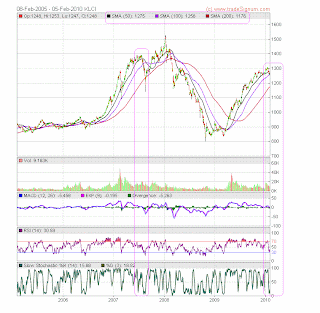Here are some select excerpts:
* The results are broadly in line with current market risk perceptions as in recent years Emerging Europe has generally suffered from wide current account deficits and excessive foreign borrowing and hence large external financing requirements/relative to FX reserve positions. Rigid exchange rate regimes, predominant through the region, add an extra vulnerability, suggesting a very hard landing for these economies, with pass thru to banking sectors via rising [nonperforming loans].
* None of the major EM economies in Asia and Latin America surveyed appear vulnerable to crisis as per the IMF definition/methodology. The latter two regions’ much better external financing positions, particularly reflect the maintenance of current account surpluses and relatively light external debt burden while the accumulation of healthy stocks of FX reserves during the “good years” provide an added degree of insulation.
* The analysis clearly has its limits as it only reveals “ability to pay”. As recent debt crises (e.g. Argentina and Ecuador) in Latin America and perhaps even Dubai in CEEMEA, in particular, have shown, “willingness to pay” is also critically important, but difficult to model. Countries could perhaps use the “cover” of the global crisis to manage their external liabilities lower by restructuring liabilities.
Since then, the problem in Southern Europe (in Greece, Spain & Portugal) has become acute. Ambrose Evans-Pritchard at the Telegraph which has now argued the the sovereign debt perturbations in these states (which he referred to as Club MED) have the potential to have ramifications as serious as the subprime/Alt-A crisis (here). He added:
The EU's refusal to offer Greece anything beyond stern words and a one-month deadline for harsher austerity – while admirable in one sense – is to misjudge how fast confidence is ebbing. Greece's drama has already metastasised into a wider systemic crisis. The world risks a replay of the Lehman collapse if this runs unchecked, this time involving sovereign dominoes.
This may explain why the USD index has been rallying since December last year. As I posted earlier, the rise in the USD could be due to something more than technical reasons (such as, deeply oversold position), probably the onset of financial turmoil ahead.

Chart 1: USD's weekly chart as at 5/2/2010 (Source: Stockcharts.com)
One can see that this problem has already affected equity markets in Germany, France & UK, where the main market barometers have all broken below their respective medium-term uptrend line.

Chart 2: CAC, DAX & FTSE's weekly chart as at 5/2/2010 (Source: Yahoo Finance)
Our FBM-KLCI has broken below the 100-day SMA line, which is either at 1258 as per Tradesignum or 1245 as per Quickcharts. As at 4.20 pm today, FBM-KLCI was trading at 1235 (down about 12 points). The breakdown of the 100-day SMA line could see the FBM-KLCI testing the psychological 1200 level. With long lunar new year holidays coming up, the market can be expected to be extremely volatile. The possibility of a sharp sell-off cannot be discounted at this stage. Some however may view the current weakness in Asian stock markets as a good buying opportunity as most Asian economies are in much better shape than many other economies, even some developed economies.

Chart 3: FBM-KLCI's daily chart as at 8/2/2010_3.20pm (Source: Quickcharts)

Chart 4: FBM-KLCI's daily chart as at 5/2/2010 (Source: Tradesignum)
No comments:
Post a Comment